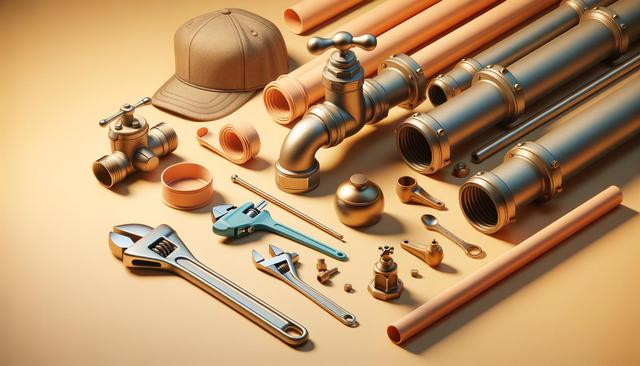Understanding the Role of a Plumber
Plumbing jobs involve much more than fixing leaks or unclogging drains. At their core, plumbers are skilled tradespeople responsible for installing, repairing, and maintaining piping systems. These systems may be related to water supply, heating, sanitation, or drainage. The scope of work can vary greatly depending on the type of project and setting, which might include residential homes, commercial buildings, or industrial facilities.
Plumbers often work with a variety of tools and materials such as copper, PVC, and PEX piping. Their daily tasks require a mix of technical knowledge and physical effort, and they must be adept at reading blueprints, complying with local codes, and ensuring the safety of plumbing systems. Some key responsibilities include:
- Installing water and gas lines
- Repairing broken or leaking pipes
- Testing plumbing systems for leaks and functionality
- Maintaining water heaters and other appliances
The job also demands a strong understanding of building regulations and health and safety standards. Because of this, plumbers play a crucial role in maintaining public health and home safety.
Pathways to Entering the Plumbing Trade
Entering the plumbing profession typically starts with education and hands-on training. Many plumbers begin with a high school diploma or equivalent, followed by enrollment in a technical school or apprenticeship program. Apprenticeships are a cornerstone of the trade, providing practical experience under the supervision of licensed professionals.
During an apprenticeship, individuals learn essential skills such as:
- Pipefitting and soldering techniques
- Reading construction drawings
- Local plumbing codes and regulations
- Customer communication and troubleshooting
After completing the required training and passing licensing exams, apprentices become journeyman plumbers. Some go on to become master plumbers, which can open the door to leadership roles or business ownership. It’s a career ladder that offers tangible growth and the potential for specialization in areas like green plumbing, medical gas systems, or fire suppression systems.
Opportunities and Demand in the Plumbing Industry
The demand for plumbing jobs remains consistently strong, driven by the ongoing need for skilled tradespeople in both new construction and maintenance work. As buildings age and infrastructure requires updates, plumbers become essential in ensuring systems operate efficiently and safely. In addition, the push toward sustainable construction practices has introduced new opportunities in water conservation and energy-efficient systems.
Plumbing is a versatile field with opportunities in sectors such as:
- Residential repair and installation
- Commercial construction and facilities maintenance
- Municipal water systems
- Industrial and manufacturing settings
This diversity allows plumbers to tailor their careers to their interests and strengths, whether that means working independently, joining a larger company, or entering a niche market. The job stability and variety make it a practical and appealing option for many.
Skills and Traits That Support Success in Plumbing
Plumbing jobs require a unique blend of technical skills and soft skills. While physical ability and mechanical knowledge are vital, equally important are the traits that support professionalism and customer satisfaction. Successful plumbers are often:
- Detail-oriented and precise in their work
- Strong problem-solvers with analytical thinking
- Effective communicators, especially when explaining complex issues to clients
- Adaptable and able to work in a range of environments
In addition to these traits, staying current with advancements in tools, materials, and regulations is crucial. Continuing education and certification courses help plumbers remain competitive and informed. For those looking to advance in their careers, business skills and leadership capabilities can become increasingly important, especially for those interested in managing teams or running their own businesses.
Benefits and Challenges of a Plumbing Career
Like any profession, plumbing comes with its own set of advantages and challenges. One of the key benefits is job security. The ongoing need for plumbing services ensures steady employment opportunities. Additionally, many plumbers appreciate the tangible results of their work and the satisfaction that comes from solving problems and helping others.
Some notable benefits include:
- Competitive wages and opportunities for overtime
- Minimal student debt compared to traditional four-year degrees
- Opportunities to work independently or start a business
- Variety in daily tasks and work environments
However, the job can also be physically demanding and occasionally unpredictable. Plumbers often work in tight spaces, encounter emergency calls, and deal with weather-related challenges when working outdoors. Despite these hurdles, many in the field find the work rewarding and take pride in their essential role in society.
Conclusion: A Viable and Rewarding Career Path
For those who enjoy hands-on work, critical thinking, and the satisfaction of solving real-world problems, plumbing offers a viable and fulfilling career. With a clear path for advancement, strong job security, and the ability to make a direct impact, plumbing jobs continue to attract individuals looking for meaningful, stable work. Whether you’re just starting your career journey or considering a trade transition, plumbing is a profession worth exploring for its long-term benefits and practical opportunities.




Leave a Reply